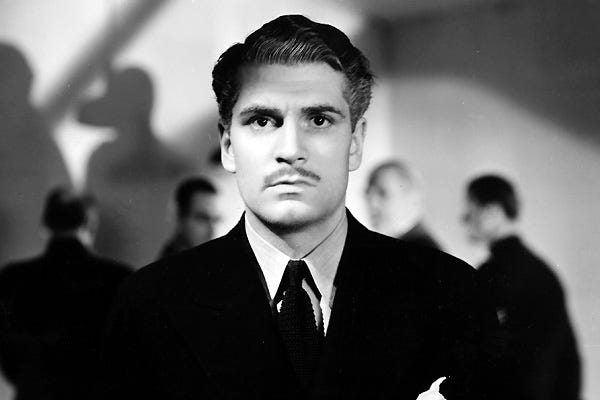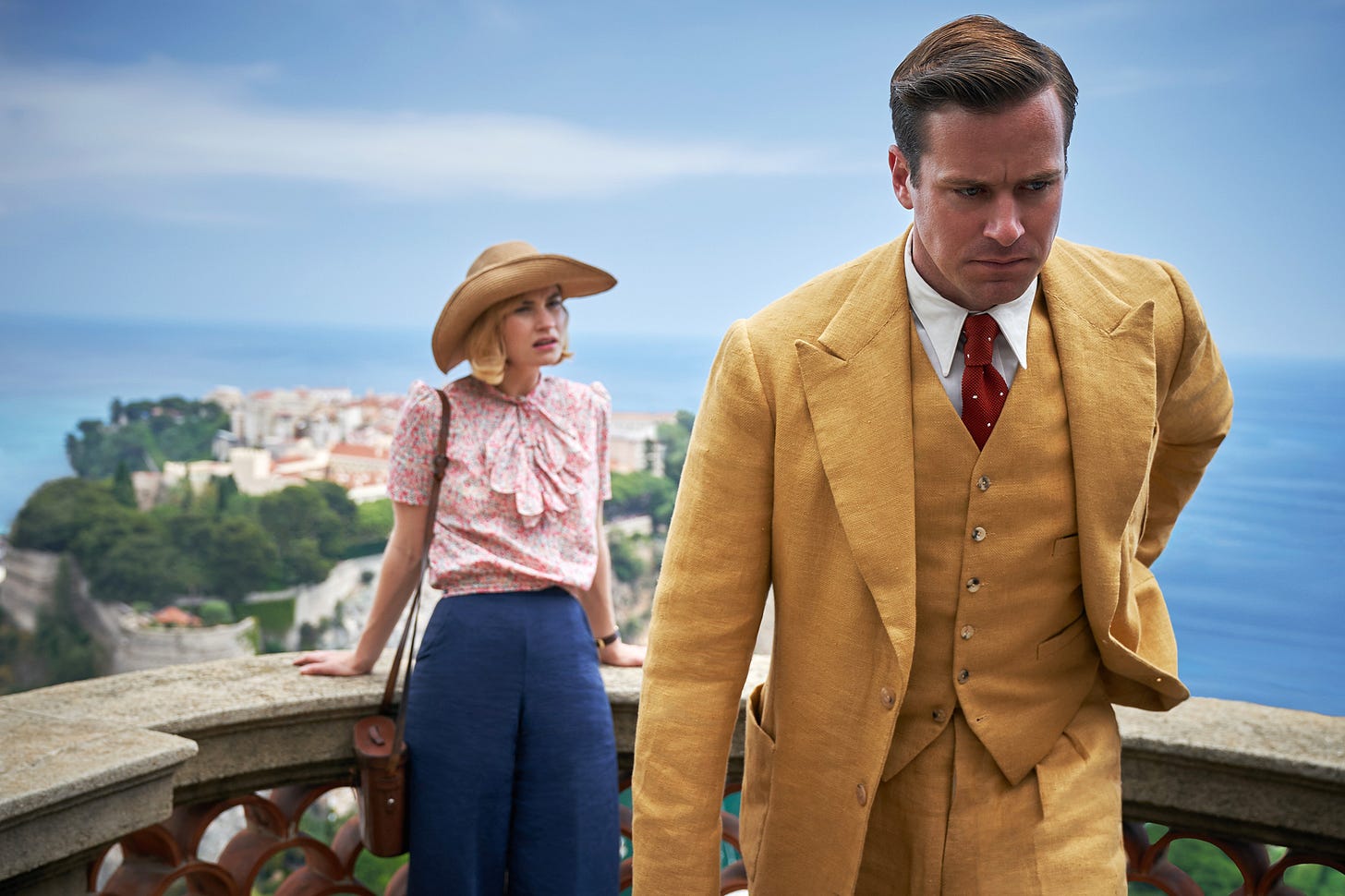Welcome to Reading Revisited, a place for friends to enjoy some good old-fashioned book chat while revisiting the truth, beauty, and goodness we’ve found in our favorite books.
Today we are revisiting Rebecca by Daphne du Maurier (our November 2023 book). I hope you enjoy! If you didn’t read with us back in November then see the bottom of this post for old posts to accompany your future reading.
The Final Thoughts and Discussion Questions for The Remains of the Day will be in your inbox on Wednesday
(This post does contain spoilers if you haven’t finished Rebecca yet…wait to read until after you’ve finished reading or there will be big spoilers!)
Like any good book should cause us to do, I have been thinking about Rebecca since I finished it a few months ago (it was our November book in 2023). If you can put a book down and never think about it again then maybe it isn’t a good book, even if you enjoyed the story. The good books are ones that keep coming back to us and make us ask questions that make us more human. I think Rebecca is a book that can teach us some lessons about how to read well. It is indeed a page turner, but it also asks deep questions about morality and life.
This is going to be an essay in the traditional sense of the word, “an attempt.” I know that I do not think that I have the only authoritative take on Rebecca (or Daphne du Maurier’s thoughts). Like Northrop Frye (in The Educated Imagination) I say, “whether my answers are any good or not, they represent a fair amount of thinking about the questions.” But, I would like to think about this further and sometimes writing is the best way to do that. Additionally maybe it will help some of you think through these questions too.
I want to start by saying that I do not think that Daphne du Maurier wrote Rebecca specifically to teach us a lesson. Like Flannery says, the point of the story is the story.
“When you can state the theme of a story, when you can separate it from the story itself, then you can be sure the story is not a very good one. The meaning of a story has to be embodied in it, has to be made concrete in it. A story is a way to say something that can’t be said any other way, and it takes every word in the story to say what the meaning is. You tell a story because a statement would be inadequate. When anybody asks what a story is about, the only proper thing is to tell him to read the story. The meaning of fiction is not abstract meaning but experienced meaning, and the purpose of making statements about the meaning of a story is only to help you experience that meaning more fully.”
-Flannery O’Connor (Mystery and Manners, September 2021)
That, however, does not mean that we won’t learn anything from literature. By all means I hope we all learn something from every book we ever read. A good story will show us life in a deeper way than we can normally experience since our perspective is so limited. In stories we get to, through the life of the imagination, live other lives and therefore expand the experiences and thoughts we can have. Like C.S. Lewis says in An Experiment in Criticism (October 2020), “in reading great literature I become a thousand men and yet remain myself.” I hope we are all more ourselves because of the humanity we encounter in good literature.
I recently listened to an interview with Amor Towles (the author of our December 2023 book, A Gentleman in Moscow) where he was asked what we can learn from the main character, Count Rostov. He answered firstly by clarifying that that is not why he writes stories. And then he said that “story is a machine of meaning.” I love that phrase! So I think coming to this conversation with the understanding that stories convey meaning instead of teaching a lesson (at least most of my preferred stories…the Victorians would care to argue with Flannery and I here) will be helpful as we consider what we may learn along the way.
And after that (very long) digression, let’s get back to Rebecca.
First, we need to remember that we are reading a certain genre. In Rebecca we have a male lead that our modern sensibilities may not be as attracted to as du Maurier intended us to be. She was writing a novel in the Gothic tradition of literature that values broody and emotionally distant men. So I think a good place to start our reading is that whether you personally think Maxim the epitome of male attraction, he was intended to be by du Maurier. He is supposed to make the ladies swoon. If he isn’t your personal fancy, that is okay. But, I do think it is important to read and think about the novel in a way that we remember that he should be likable.
The next thing we need to remember is that good literature moralizes in the same way that the Bible does, especially in the Old Testament. The writers or Sacred Scripture rarely moralize explicitly on the actions of a character. They normally show us whether an action was right or wrong by the consequences that follow. Which I think we can all agree is a much more interesting way to be told a story.
What child wants to be read or told a story in order to “learn a lesson?” Especially if that lesson is only what the grown up thinks the child needs in that moment. I think as adult readers we all feel the same way. A good author will not be forcing a moral down our throat. C.S. Lewis has good advice to writers about this…
“The only moral that is of any value is that which arises inevitably from the whole cast of the author’s mind.”
-C.S. Lewis (On Three Ways of Writing for Children)
Likewise, authors in Scripture will never say “…and it was really wrong for Jacob to lie.” We are much more likely to be shown that it was bad for Jacob to lie. The author of the story shows us that after Jacob lies and tricks to receive the blessing, then he is lied to and tricked as well (by Laban). Moreover we also see how he has changed by his reaction to the tricking.
It is in this vein that I think we ought to read the morality of Maxim killing Rebecca (and our narrator supporting him once she finds out). Du Maurier doesn’t come out and tell us how this is against morality. She also doesn’t immediately bring the force of the law down on his head. What she does do is punish him in just measure.
His punishment doesn’t come from the law because that wouldn’t be the punishment to fit his crime (at least in the world of the story). His punishment comes in the form of losing Manderly, his beloved house. Now that does seem to be the just punishment for his crime. In the novel we are shown that everything he did he did for Manderly and that Rebecca herself made Manderly what it was. He married and killed her to protect Manderly. And that is exactly what he loses.
So while I think we should have sympathy for Maxim even though he killed Rebecca (after all, she was the epitome of evil), we are shown that he is being punished for his wrong doing and the punishment seems to fit the crime, probably even more than a legal punishment would. I know a lot of people at book club wanted him to be convicted by the law because murder is a mortal sin. And it is, I agree. But, I think what du Maurier wrote is much better storytelling.
In the end the narrator and Maxim are just about where they started: bored in a hotel and trying to move on with their lives. And we get to contemplate the complexities of sin (even if it is for a “good cause”). This is much more fascinating than a simple prison sentence.
This makes me think of the beginning of My Cousin Rachel (also by du Maurier)….
“They used to hang men at Four Turnings in the old days.
Not any more, though. Now, when a murderer pays the penalty for his crime, he does so up at Bodmin, after a fair trial at the Assizes. That is, if the law convicts him, before his own conscience kills him.”
Isn’t it much more appropriate to be haunted in a gothic novel than criminally convicted?
This is the end of the book for us, however it is not the end of the story for our characters. We are left to hope that their consciences will continue to work on them.
“We can never go back again, that much is certain. The past is still too close to us.”
-Our nameless narrator in Rebecca
I can’t wait to read Jane Eyre (the Penguin Deluxe version I’ve been eying is half off right now…because is there such thing as having too many copies of Jane Eyre?) with you all soon (October 2024) and continue the discussion about sin, justice, and literature.
Rebecca Posts
Keep revisiting the good books that enrich your life and nourish your soul.
In Case You Missed It
An Introduction to The Remains of the Day and Kazuo Ishiguro (w/ Podcast Links)
A Few Reminders
If you are wanting to get in on the in person or virtual community please contact me!
Book lists from previous years can be found here.
*As always, some of the links are affiliate links. If you don’t have the books yet and are planning to buy them, I appreciate you using the links. The few cents earned with each purchase you make after clicking links (at no extra cost to you) goes toward the time and effort it takes to keep Reading Revisited running and I appreciate it!









LOVE all of this. Also that Flannery quote is such a mic drop 👌
I agree with so much that you have said here. Definitely think that a story written just to relate a moral is one the I probably don't want to read.
Let us not be Ms Prism.
"The good ended happily, and the bad unhappily. That is what Fiction means". Important of Being Ernest Act 2, Part One
Yet, as you point out, great books do play on human themes showing evil and sin very vividly. I don't think, as you said, that "Rebecca" has a moral. As Daphne du Maurier pointed out, it is a story about jealousy. I think there are quite a few other themes in the book worth exploring. But jealousy is central.
With that in mind I look forward to the discussions on Othello. What could/will jealousy drive the character to do?
Maybe a compare and contrast is in order.